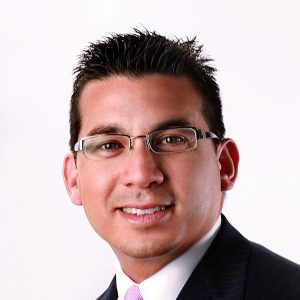In the wake of the Champlain Towers South condominium building collapse, insurance companies are looking to tighten their underwriting requirements on Florida condo association policies. Policy renewal premiums are expected to increase up to 25% for those that can’t show a good building maintenance record. While the commercial residential market tightens, Florida’s homeowners insurance market is going through an upheaval of its own. One insurance litigation reform measure passed into law is now coming into play in court: presuit settlements.
Former Florida Deputy Insurance Commissioner Lisa Miller talks with two professionals on the underwriting and legal side for their insight on market changes afoot and advice for insurance companies trying to navigate the changes.

Michael Monteverde, Esq., Partner, Zinober Diana & Monteverde

Brian Squire, Managing Executive Senior Vice President at Hays Companies
Show Notes
This Florida Insurance Roundup podcast covered two topics that have one thing in common: how to clamp down on rising premiums, rising costs, and excessive litigation expense.
Condominium Association Underwriting:
Florida’s commercial residential insurance companies are actively looking at how to avoid insuring another condominium building collapse or similar major catastrophe. The Champlain Towers South collapse in June killed 98 residents in Surfside, Florida. At least five other high-rise buildings in Miami-Dade County have since been partially or fully evacuated for being deemed unsafe.
Brian Squire, Managing Executive Senior Vice President at Hays Companies, a national insurance consulting agency, said there’s a systemic issue at play with how condo buildings are maintained and how their associations are governed. “You have a board of directors that make decisions on behalf of the association, but then the condominium association’s governing documents allow its members to veto the board’s decision. These decisions made regarding the maintenance of these associations, on a lot of cases, are based on cost first, then life safety. This mindset needs to change,” he said, noting there have been multiple associations who’ve had decisions levied against them recently.
In the wake of the disaster, Surfside officials are moving up building recertifications for occupancy from every 40 years to every 30 years and requiring sign-off by both a structural engineer and a geotechnical engineer checking the foundation and subsurface soils. But Squire insists the age of the building shouldn’t be the sole factor. “I’ve seen newly constructed buildings have issues similar to a Champlain Towers. So we really need to wipe away the mindset that this is only needs to be applied to a 40 year building,” said Squire, who has been in the insurance business for 21 years and is based in the condominium-popular Destin, Florida.
In his recent conversations with many insurance companies, Squire said there’s many potential new underwriting requirements now under consideration. They include:
- More detailed on-site inspections of buildings annually;
- Requiring board of directors of buildings to sign affidavits, confirming there are no outstanding maintenance issues;
- Review of past board minutes; and
- Review of condo association financial statements
Among the solutions he suggested, is requiring engineering studies of all existing condominium buildings, pre-qualification of underwriting through insurance carriers, and possibly legislative changes. Squire said associations should be proactive prior to policy renewal, too. “What’s going to make it look better is replacing or maintaining a roof and making sure that you have impact windows. Those are really the two items that can easily be addressed,” he advised.
Host Lisa Miller noted that the Building Officials Association of Florida recently held a summit to address structural safety issues and potential changes with other groups. They included the International Code Council, the National Institute of Building Sciences, the Building Owners and Managers Association, and the Florida Bar’s Condominium Law and Life Advisory Task Force. Proposed legislation is being drafted as well for the Florida Legislature to consider in its January 2022 session.
Presuit Settlements:
The new presuit settlement law is part of SB 76, Florida’s broader new property insurance reform law that took effect in June. It requires that insurance companies receive a ten-day notice and demand before a lawsuit is filed by first-parties, such as homeowners or commercial building owners. And it establishes how carriers need to respond. Michael Monteverde, an insurance defense attorney with the Zinober Diana & Monteverde law firm, said the purpose was to allow insurance companies to resolve conflicts and reduce Florida’s “out-of-control litigation.” But he said some of the intended benefits haven’t played out yet, including whether plaintiff attorney fees, a driver in expensive litigation, will ultimately be reduced.
With the elimination of Florida’s one-way attorney fee statute that encouraged inflated claims, the new law “creates more of a chess game, to try to get everybody to a place where there is a reasonable number,” said Monteverde, who manages the firm’s Fort Lauderdale office. “Because of the way that the fee provision kind of shifts under the new statute and SB 76, what the insurance carriers can do is they can set up the offers in response to the demands in a way that really kind of dares the plaintiff attorneys to reject the offer, because now we are setting up a situation where the fees are either limited or completely done away with and each party to bear its own fees and costs depending on what you are ultimately able to recover in the lawsuit.”
He said the new law also takes away from the incentive for a plaintiff attorney to overly demand. “So if you have a $70,000 case, there’s no reason to come in and demand $600,000 to try to move the needle, because you may just be shooting yourself in the foot based on the way that the insurance carrier ultimately responds to that presuit demand,” said Monteverde, who appeared in a June podcast on how SB 76 works.
Monteverde added that it seems most of the policyholder attorneys are trying to comply with the presuit notice requirement “and some of the results have been somewhat encouraging,” but there’s confusion whether the law applies to actions filed after the effective date of the law (June 11, 2021) or the policy date.
Monteverde also weighed-in on the condominium association underwriting issue, noting past catastrophes, such as hurricanes, have revealed that some associations are not keeping statutorily-required reserves for basic functions. “If I were advising a carrier, I would say look at your underwriting processes, make sure that people are properly reserving, and make sure that the maintenance funds are going where they’re supposed to be because they’re turning the insurance policies in some instances into maintenance contracts. And that’s not what they are,” he said.
“’Maintenance first’ sounds like the theme of this podcast for those that are in the commercial residential space,” concluded host Miller. “Having impact windows, making sure your roof is intact, and of course, consulting with your insurance professional.”
Links and Resources Mentioned in this Episode
Building Officials Association of Florida
Surfside’s Ripple Effect (LMA Newsletter of July 12, 2021)
Legislature to Review Condo Inspection Rules (LMA Newsletter of July 26, 2021)
Insurance Impacts of the Surfside Collapse (LMA Newsletter of July 26, 2021)
Who Will Insure Florida’s High-Rise Condos? (LMA Newsletter of August 9, 2021)
Florida Senate bill SB 76 (the presuit settlement section is in lines 1138-1173)
DFS Property Insurance Intent to Initiate Litigation portal
Zinober Diana & Monteverde law firm
Florida Legislature 2021 Bill Watch summary (Lisa Miller & Associates)
Florida one-way attorney fee statute
Property Insurance Reform (The Florida Insurance Roundup podcast, May 23, 2021)
Assignment of Benefits & Insurance Litigation Webpage (Lisa Miller & Associates)
** The Listener Call-In Line for your recorded questions and comments to air in future episodes is 850-388-8002 or you may send email to [email protected] **

